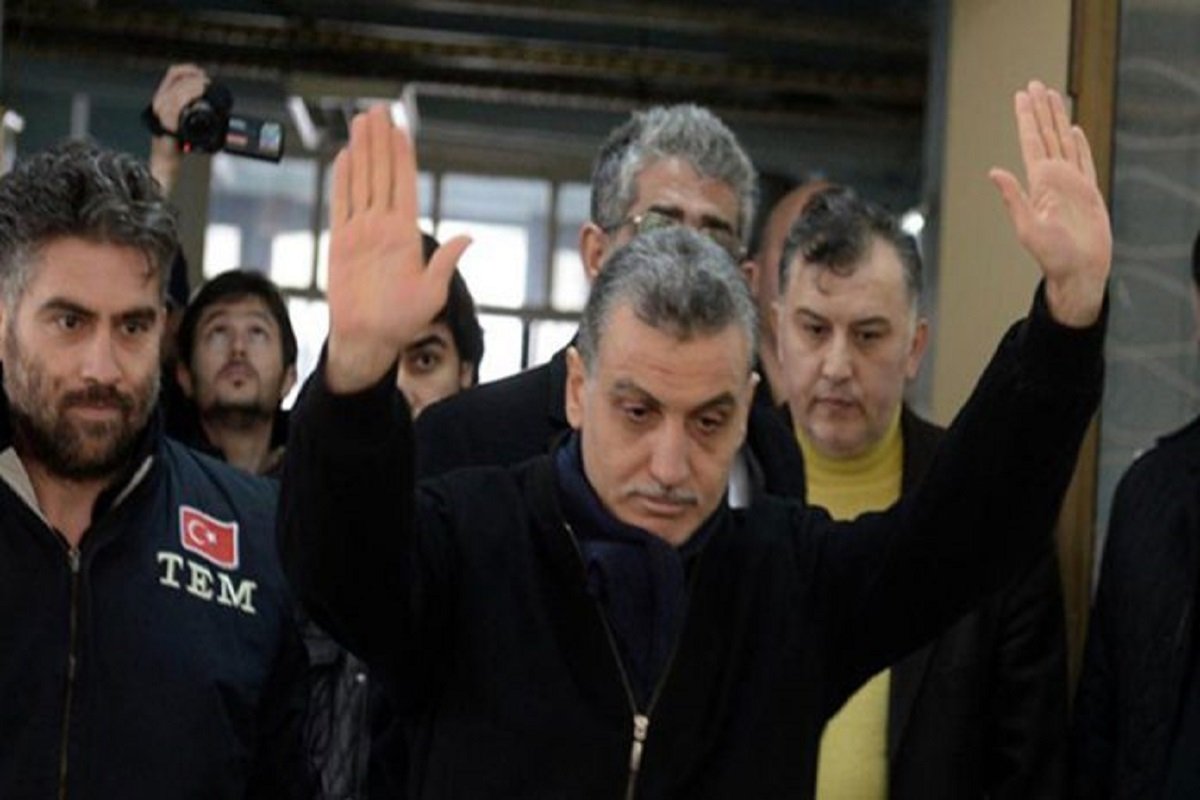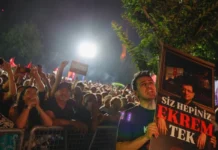Turkish prison officials refused to provide a print copy of indictment and evidentiary case file to a veteran journalist who has been jailed in Turkey for 819 days without a conviction, citing environmental concerns and saving trees.
Hidayet Karaca, a journalist and top manager of Samanyolu TV network, has been denied from receiving court papers including indictment and evidentiary case file in prison, preventing him from mounting a defense against trumped-up terror charges. In filed papers with the court, a copy of which Stockholm Center for Freedom (SCF) has obtained, prison officials defended themselves, arguing that failure to deliver papers to Karaca’s cell has to do with “preserving the nature, prevent littering and the risk of fire.”
Karaca had been detained in December 2014 as a result of police raid targeting the critical network and has been jailed since then. In one of the most bizarre cases of freedom of press in Turkey, the government accused the network of defaming an al-Qaida affiliated Turkish group called Tahşiyeciler in an episode of a soap opera Samanyolu broadcasted.
The case prompted criticisms against Turkish government which is accused of protecting Tahşiyeciler group whose leader, Mehmet Doğan, had publicly praised Osama bin Laden and called for killing of Americans. Previous reports by police intelligence, military intelligence and the National Intelligence Organization (MİT) had described Tahşiyeciler as a terrorist group linked to al-Qaeda. The government also shut down Samanyolu network in August 2016 along with 180 media outlets.
In the case brought forward against journalist Karaca and former police investigators who probed al-Qaida affiliated group, defendants appeared for the first time in the court room for a trial hearing after one and half years in pre-trial detention. Public prosecutor submitted to the court an evidentiary case file composed of some 57,000 pages which allegedly included criminal evidence against 33 suspects, 9 of them in detention. Although the court ordered prison officials to provide copies to detained defendants, it turned out that order was not complied by authorities, forcing suspects to defend themselves without actually seeing the evidence.
When the trial phase started, İstanbul 14th High Criminal Court issued a ruling to share all evidentiary files with suspects so that they can defend themselves. The order stated that the case file and all relevant documents must be provided to the defense in a DVD format. In the next hearing, journalist Karaca and other defendants complained that they have difficulty in reading the case file because they were not provided computers in the prison cells. Instead they were directed to use library computers only with a limited amount of time and even those computers located at the library did not work most of the time.
The complaints had lingered for ten trial hearings without any resolution to the grievances by defendants who were thwarted from reading the case file. Eventually, Turkish court decided to provide a print copy of the case file to defendants and sent to the prison management for distribution. Yet prison officials did not comply with this order either, not delivering printed copies of the case file to Karaca and other suspects. When the issue was raised in the subsequent hearing, the court asked an explanation from the prison official about why they did not deliver copies to defendants.
The prison management sent a response to court listing various reasons for not delivering print copies to detained suspects. They said if printed copies of 114 folders comprising 57,000 pages were to be provided to suspects, “that would create environmental pollution and may harm ecology and nature.” Moreover, they also claimed printed papers may disturb the order in prison cells, may compromise the security and safety of the prison by risking a fire. Prison officials even claimed that suspects may hide a contraband among so many pages of documents.
The prison management not only failed to comply with the court order on providing hard copies to defendants but also restricted the access of suspects to the case file in DVD format, limiting their time in the library. When suspects asked to print documents from DVD in the library they were obligated to petition the prison management for each printing job and forced to pay for the cost of printing.
Karaca and other defendants asked the court to force prison officially to comply with the court orders, to file charges against prison officials who fail to execute court judgments. However no criminal charges filed against prison officials who refused to comply with court orders.
Defendants also said they could not properly defend themselves without reading the case file and knowing the charges and evidence included in the indictment.
In a related case being heard in Ankara No.4 High Criminal Court, Karaca was brought to a trial hearing in February while he had been deprived of food and water during his transfer from İstanbul’s Silivri Prison to the courtroom in Ankara. Karaca had to plead for a water during a testimony in the courtroom.
As of March 1, 2017, SCF has confirmed that 200 journalists and media workers are behind bars in Turkey, a world record by any measure. Of these journalists, 179 are arrested pending trial and without a conviction. Most of the journalists do not even know what the charges are or what evidence, if any, the government has because the indictments were not filed yet.
The Turkish government is apparently using arbitrary arrests as part of intimidation campaign to suppress critical coverage, muzzle independent media and silence journalists. Only 21 journalists who are in jail were convicted while the rest are in abusive and long pre-trial detentions. Moreover, sweeping detention warrants have been issued for 92 journalists who are forced to live in exile abroad or remain at large in Turkey.
March 17, 2017

















[…] has been over three years since one of the most brilliant names of the Turkish media industry Hidayet Karaca was confined within four walls. While I am writing these lines, Mr. Karaca has been in jail for 2 […]